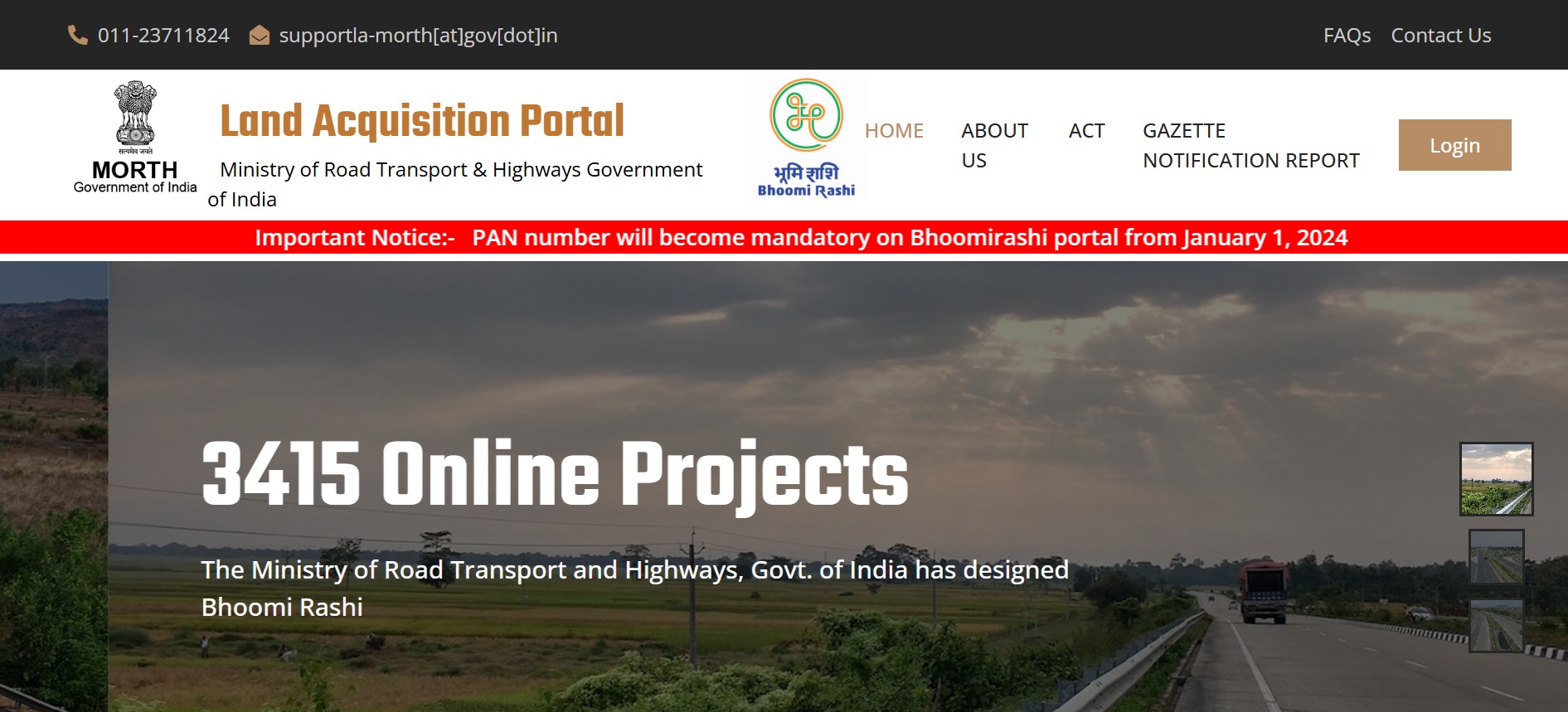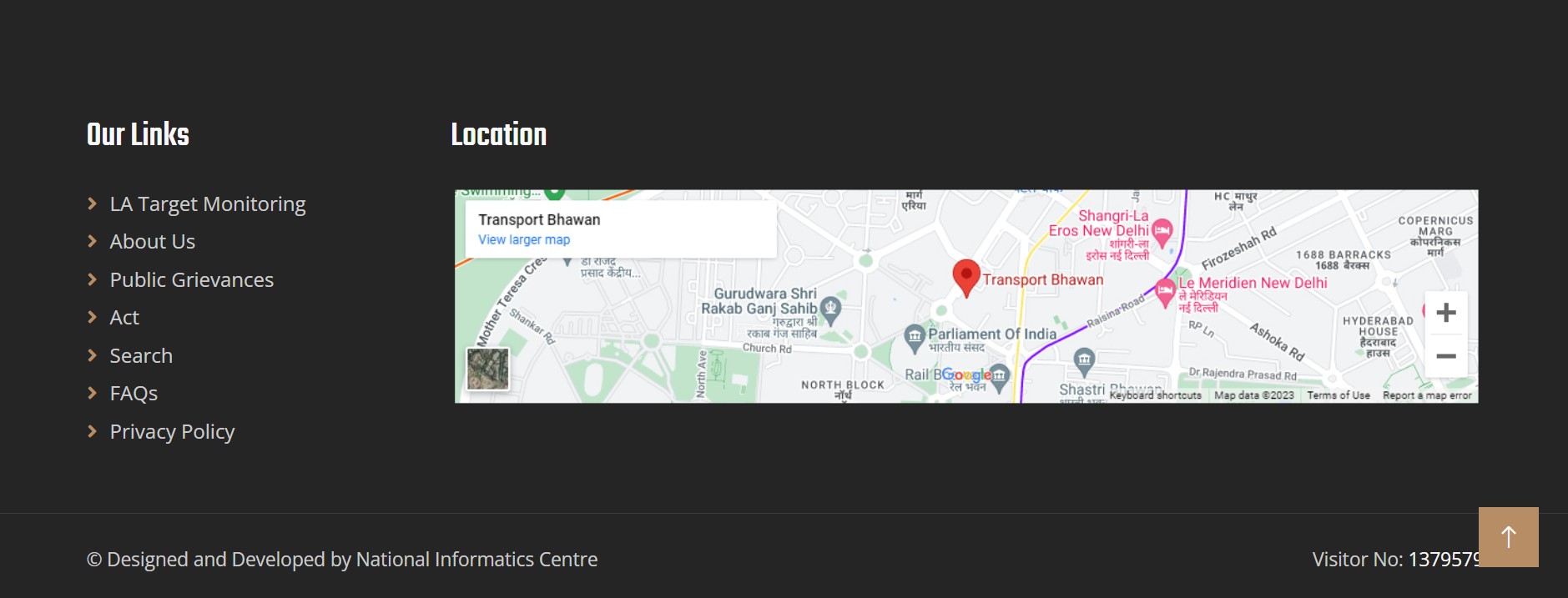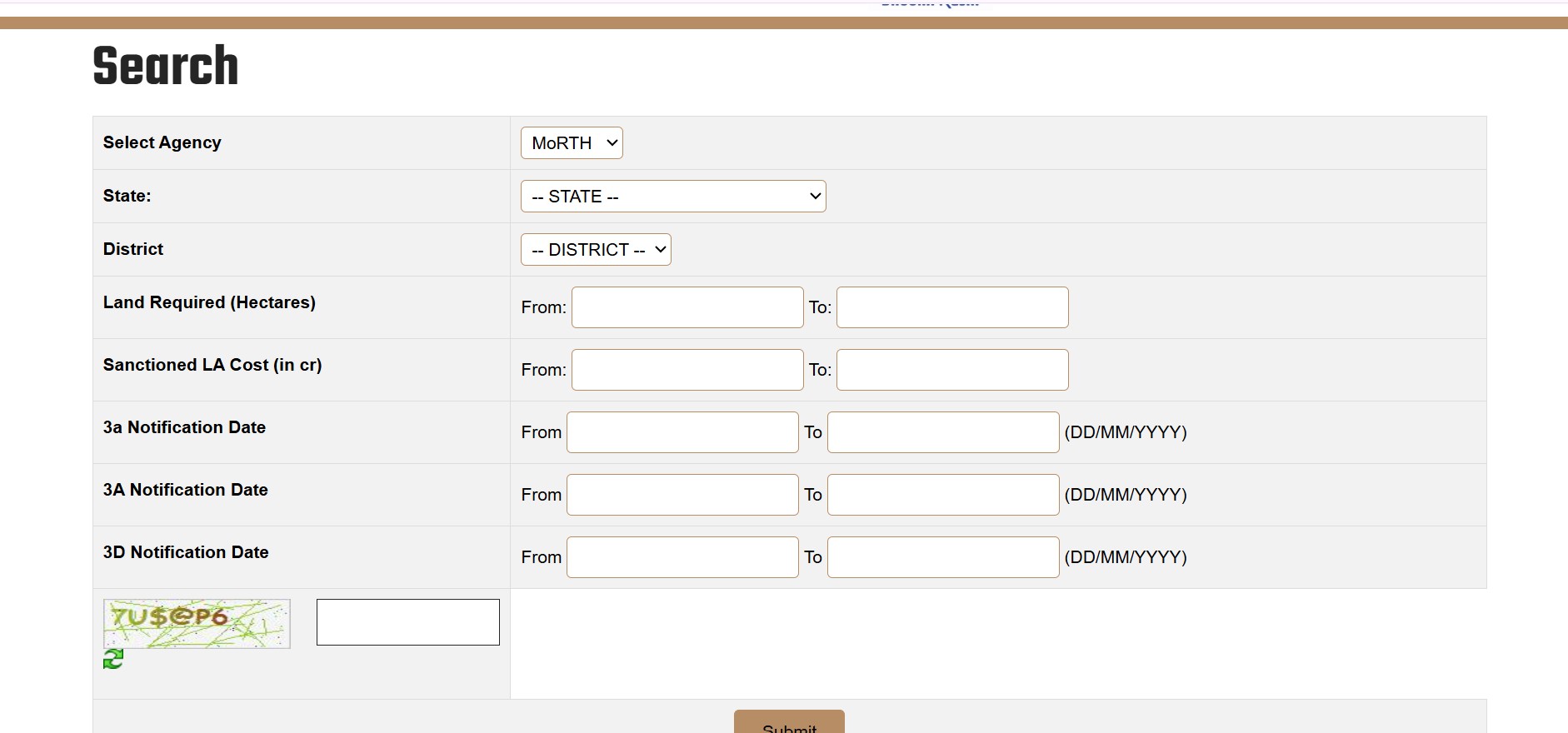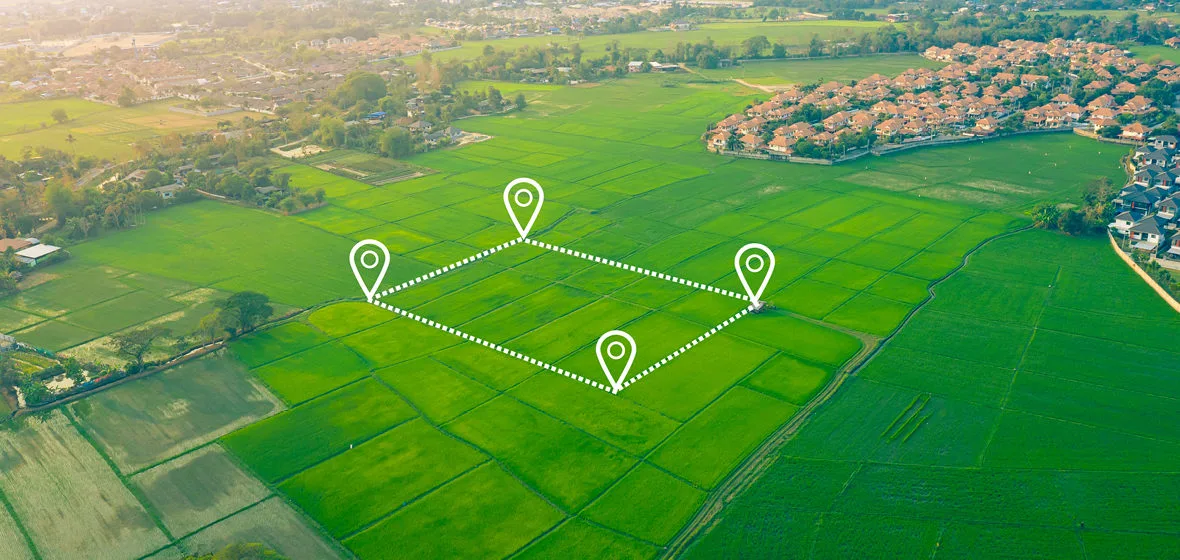Table of Content
▲- What Is a Government Acquisition Plan?
- Why Is It Important to Verify Property Status?
- Offline Methods to Check Land Under Government Acquisition
- Online Methods to Verify Land Acquisition
- Steps to Take If Your Land Falls Under a Government Acquisition Plan
- Benefits of Verifying Land Acquisition Status
- Conclusion
Investing in real estate is a big investment that requires critical examination to avoid unexpected risk. One key thing to check is whether a property is subject to a government acquisition program. Government acquisition programs allow government agencies to acquire private land for the benefit of the public and include projects related to building infrastructure, urban planning, or industrial use. Government acquisition programs are commonly initiated by the central government, state government, certain urban development authorities, or other government agencies, such as the National Highways Authority of India (NHAI).
Knowing how to check if a property is subject to a government acquisition program may prevent you from suffering financial loss, facing legal action, or facing eviction. In this article, we prepared a guide to learn how to identify whether property is subject to ga overnment acquisition program offline and/or online, and how to determine the next steps if you find that land is subject to a potential government acquisition.
What Is a Government Acquisition Plan?
A government acquisition plan is a legal mechanism that permits a government body to acquire private land for public purposes. Some examples of governmental acquisition are:
- Construction of highways, bridges, and/or metro rail systems
- Construction of industrial estates, public parks, and housing projects
- Urban redevelopment and expansion plans
This is governed by the Right to Fair Compensation and Transparency in Land Acquisition, Rehabilitation, and Resettlement Act, 2013. Although the government has the ability to compensate and rehabilitate affected property owners with this act, it is very important to verify a property's status to avoid legal or financial problems.
Also Read: Understanding a Property Sale Agreement: Definition and Key Details
Why Is It Important to Verify Property Status?
Failing to verify if a property falls under a government acquisition plan can result in:
- Forced Eviction: You may lose the property without prior notice or adequate compensation.
- Financial Loss: Legal disputes or a lack of compensation can result in significant monetary setbacks.
- Investment Risks: Properties under acquisition may be unsuitable for development, resale, or long-term investment.
Thorough verification allows buyers to safeguard their investment and avoid these risks.
Offline Methods to Check Land Under Government Acquisition
1. Sub-Registrar or Revenue Office
One of the most trusted methods of confirming property status is to go to the sub-registrar's office or the land revenue department.
- Request an Encumbrance certificate (EC): An EC records all encumbrances, including acquisition notice, on the property.
- Obtain a Record of Right (RoR): A RoR gives you the details of ownership of rights over property.
2. Municipal Corporation or Urban Planning Office
Consult the local municipal office or urban planning authority for information regarding the area’s Master Plan and Zonal Development Plan. These plans highlight any land earmarked for future public projects or acquisition.
3. Newspaper Notifications
Government land acquisition notices are often published in regional or national newspapers. Regularly checking these publications can help you stay informed about potential acquisitions in your area.
Online Methods to Verify Land Acquisition
With the digitization of land records, online platforms have made it easier to verify property status. Here are some popular options:
1. Bhoomi Rashi Portal
The Ministry of Road Transport and Highways (MoRTH) has developed the Bhoomi Rashi portal to facilitate transparency in land acquisition for highway projects.
Steps to verify property status on the portal:
Step 1: Visit the Bhoomi Rashi Portal.

Step 2: Navigate to the search section and select the appropriate agency (MoRTH, NHAI, or NHIDCL).

Step 3: Enter the state, district, and project details for precise results.

Step 4: View land acquisition status and access gazette notifications.

Step 5: Check compensation details via integration with the Public Financial Management System (PFMS).
2. State-Specific Land Record Portals
Many states have dedicated portals for land records, such as Bhulekh Uttar Pradesh, DDA (Delhi Development Authority), or Bhoomi Karnataka. These portals provide zoning plans, ownership details, and acquisition notifications.
3. National Portal of India
The National Portal of India offers access to various government services, including updates on land acquisition and ownership records.
Steps to Take If Your Land Falls Under a Government Acquisition Plan
If your property is marked for acquisition, follow these steps to protect your rights:
1. Verify the Notification
- Check official gazettes, newspapers, or municipal office records for preliminary acquisition notices.
- Confirm details on portals like Bhoomi Rashi or relevant state land record websites.
2. File Objections
Under Section 15 of the Land Acquisition Act, affected property owners have 60 days from the notification date to file written objections. Common reasons for objections include:
- Procedural lapses.
- Inadequate compensation.
- Discrepancies in land measurement.
3. Confirm Land Measurements
Ensure that the measurements and boundaries marked during the acquisition process are accurate. Report any errors to the concerned authorities immediately.
4. Claim Compensation and Rehabilitation
The Land Acquisition Act, 2013, mandates fair compensation, typically up to:
- Four times the market value in rural areas.
- Twice the market value in urban areas.
Additionally, you may be entitled to rehabilitation or resettlement benefits.
5. Consult a Legal Expert
Hire a lawyer specializing in land acquisition cases to understand your rights and explore legal remedies. Ensure that all property documents, including title deeds and tax receipts, are in order.
6. Avoid Unauthorized Transactions
Refrain from selling, mortgaging, or transferring the property after a notification to avoid legal complications.
7. Stay Updated
Regularly monitor government portals and municipal records for updates on the acquisition process, compensation disbursal, or possession timelines.
8. Plan for Relocation
If acquisition proceeds, coordinate with authorities for relocation while ensuring that all compensation and rehabilitation commitments are met.
Also Read: Understand the Sale Deed: Meaning, Features, and Roles of Buyers and Sellers
Benefits of Verifying Land Acquisition Status
- Secures Your Investment: Ensures that the property you’re buying or owning is free from acquisition risks.
- Minimizes Legal Risks: Prevents legal disputes related to ownership or compensation.
- Promotes Informed Decisions: Allows you to negotiate better or avoid unsuitable investments.
- Safeguards Future Use: Ensures that the property can be used or developed as intended.
Conclusion
The process of determining if a property is subject to a government acquisition scheme is an important one for property purchasers and owners. With the digitization of land records and the availability of the Bhoomi Rashi portal, this process is now much more accessible and transparent. By being proactive and consulting with local authorities, watching the online records, and triggering the objections process when necessary, you can protect your rights in the property and keep the investment secure.
Whatever stage you are at with this process, always do your due diligence with your purchase. You do not want to be embroiled in legal disputes or engaged in abandoning your investment. Stay vigilant, keep informed of your rights under digital records, and make use of both offline and online resources to make your real estate decision with great confidence.
Follow AquireAcers Whatsapp Channel to Stay Updated With The Latest Real Estate News






_1771410929.webp)


_1771582392.webp)
_1771577585.webp)
Ans 1. A government acquisition plan is a legal process that allows government bodies to acquire private land for public purposes, such as infrastructure development, urban planning, or industrial use, under the Right to Fair Compensation and Transparency in Land Acquisition, Rehabilitation, and Resettlement Act, 2013.
Ans 2. Failing to verify property status may lead to forced eviction, financial loss, or investment risks. Verifying ensures your investment is secure and protects against legal or financial problems.
Ans 3. Yes, property owners can file objections under Section 15 of the Land Acquisition Act if they believe the acquisition process has procedural lapses, inadequate compensation, or errors in measurement.
Ans 4. The Bhoomi Rashi portal, developed by the Ministry of Road Transport and Highways, provides transparency in land acquisition for highway projects. It allows users to check acquisition status, view gazette notifications, and track compensation details.
Ans 5. If the compensation feels inadequate, file an objection under the Land Acquisition Act within the specified time, provide evidence, and consult a legal expert to appeal or negotiate for a fair amount.